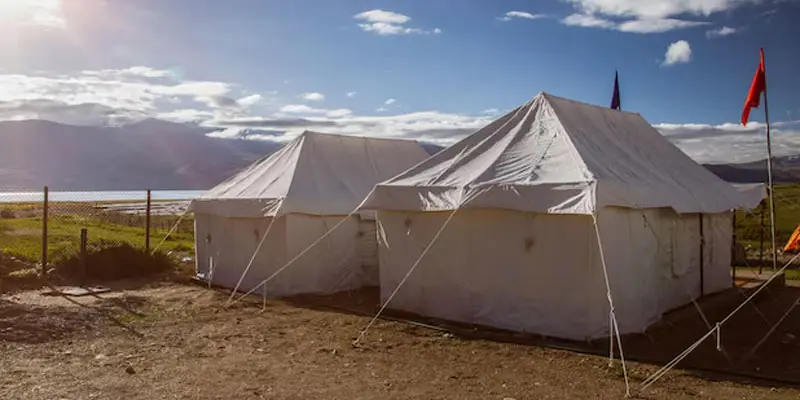
Ultimate Guide to Choosing the Perfect Camping Tent for Every Adventure
Finding the right camping tent can make or break your outdoor experience. Whether you're planning a quick weekend getaway or an epic winter expedition, the ideal tent keeps you safe, comfortable, and ready for whatever nature throws your way. With so many options available, how do you pick the best one for your adventures? This guide will help you understand your needs and navigate the many tent choices to find the perfect fit.
Understanding Your Camping Needs
Assess Your Camping Style and Frequency
Think about how often you hit the trails. Are you a weekend warrior who camps a few times a year, or a dedicated backpacker who ventures out weekly? Occasional campers might prioritize ease and affordability, while seasoned adventurers often look for lightweight gear and durability. Knowing your habits helps narrow down choices.
Consider Your Typical Camping Environments
Where do you usually camp? Coastal sites with salty air require tents resistant to rust, while mountain trips demand strong wind resistance. Desert camping calls for breathability and shading. Knowing the climate and terrain saves you from buying features you won't need and ensures your tent handles the weather.
Determine Your Group Size and Gear
How many people will sleep in the tent? Will you carry extra gear outside or inside? Always choose a tent slightly bigger than your group for comfort. For example, a family of four might want a six-person tent to have space for gear and movement without feeling cramped.
Types of Camping Tents and Their Features
Dome Tents
Dome tents are a favorite for beginners and casual campers. They're easy to set up and provide solid stability. The curved shape helps shed rain and snow. Perfect for family outings or short backpacking trips.
Tunnel Tents
Tunnel designs offer a lot of space inside and handle wind well. These tents excel for large groups or long stays where extra room matters. Their straight walls maximize usable space, perfect for family camping in the woods or open fields.
Backpacking Tents
Lightweight and compact, these tents are built for solo hikers and minimalist travelers. They pack down small and won't weigh you down during those long hikes. Ideal when every ounce counts.
Cabin Tents
If comfort is king, cabin tents have tall walls and easy-to-move-around space. These are best for car campers or families who want a home away from home at the campsite.
Specialty Tents (Four-Season, Ultralight)
Four-season tents are crafted to withstand snow, wind, and cold. Ultralight tents focus on minimal weight, great for serious trekking. Choose these only if your adventure demands tough weather resistance or low weight.
Essential Features to Consider When Choosing a Tent
Weather Resistance and Durability
High-quality tents keep you dry and protected. Look for waterproof fabrics with sealed seams. Materials with a hydrostatic head rating of 1500mm or higher provide better waterproofing. Check for ripstop fabrics or reinforced corners that withstand tough use.
Ventilation and Airflow
No one likes condensation inside the tent. Good ventilation prevents this problem. Seek tents with adjustable vents, mesh panels, or windows that boost airflow. Proper airflow keeps the space fresh and reduces dampness.
Size and Capacity
Choosing the right size is key. A tent labeled for four people might be comfortable for only two if you want extra room. It's wise to go one size up to allow space for gear and movement. Bigger tents often feel more comfortable and stay cooler.
Ease of Setup
Long, complicated setups can ruin your day. Look for tents with color-coded poles, quick-clip attachments, or pop-up designs. Practice setting up at home so you're prepared when it's time to pitch.
Weight and Packability
For backpackers, weight is a big deal. The lighter the tent, the easier it is to carry. Balance durability with weight by choosing well-made, lightweight fabrics and sturdy frames. Always compare packed sizes too, so your gear isn't bulky.
Additional Features
Extras can make your camping easier: vestibules for storage, interior pockets for gear, blackout fabric for better sleep, or rainflies for extra weather protection. Consider these based on your needs.
Choosing the Right Tent Material and Construction
Fabric Types and Waterproofing
Polyester and nylon are common. Polyester resists shrinking and stretching, while nylon is lighter but less UV resistant. Coatings like polyurethane or silicone boost waterproofing. Denier counts measure fabric thickness: higher numbers mean more durability and resistance to wear.
Poles and Frame Construction
Aluminum poles are stronger and last longer but cost more. Fiberglass poles are cheaper but tend to be heavier and more fragile. A sturdy frame ensures your tent withstands wind and rough weather.
Floor Materials and Ground Tarp Compatibility
A durable floor made from thicker fabric helps prevent tears. Using a ground tarp or footprint extends your tent's life and adds an extra layer of water resistance. It also keeps the bottom clean and dry.
Budgeting and Making the Best Purchase
Price Ranges and What They Cover
Entry-level tents are budget-friendly but may lack durability or features. Mid-range models offer better materials and ease of setup. High-end tents excel in weather resistance, weight, and comfort. Decide what's most important for your adventures.
Top Brands and Trusted Models
Reputation matters. Brands like MSR, Big Agnes, REI Co-op, and Marmot produce reliable tents trusted by outdoor lovers. Read reviews and compare models for features you need.
Tips for Testing and Returning
If possible, set up your tent at home before your trip. Check for ease of assembly and quality. Keep your receipts and verify return policies, just in case it doesn't meet your expectations after testing.
Real-World Examples and Expert Insights
Imagine a family camping in a spacious cabin tent. Having vertical walls made it easy for everyone to move around. The tent's rainfly kept the interior dry, while ample ventilation prevented condensation—making the trip smooth and comfortable.
Outdoor gear experts agree. They say that waterproofing and good ventilation are often overlooked but are crucial for a successful adventure. A well-chosen tent not only protects you but enhances your entire experience outdoors.
Conclusion
Picking the perfect camping tent boils down to understanding your environment, how many people you camp with, and what features matter most. Think about durability, weather resistance, weight, and comfort. Spend some time comparing options and testing tents at home when possible.
Remember, the right tent is an investment in memorable, safe, and comfortable outdoor adventures. Take your time, do your research, and you'll be ready to embrace every trip with confidence. Happy camping!













